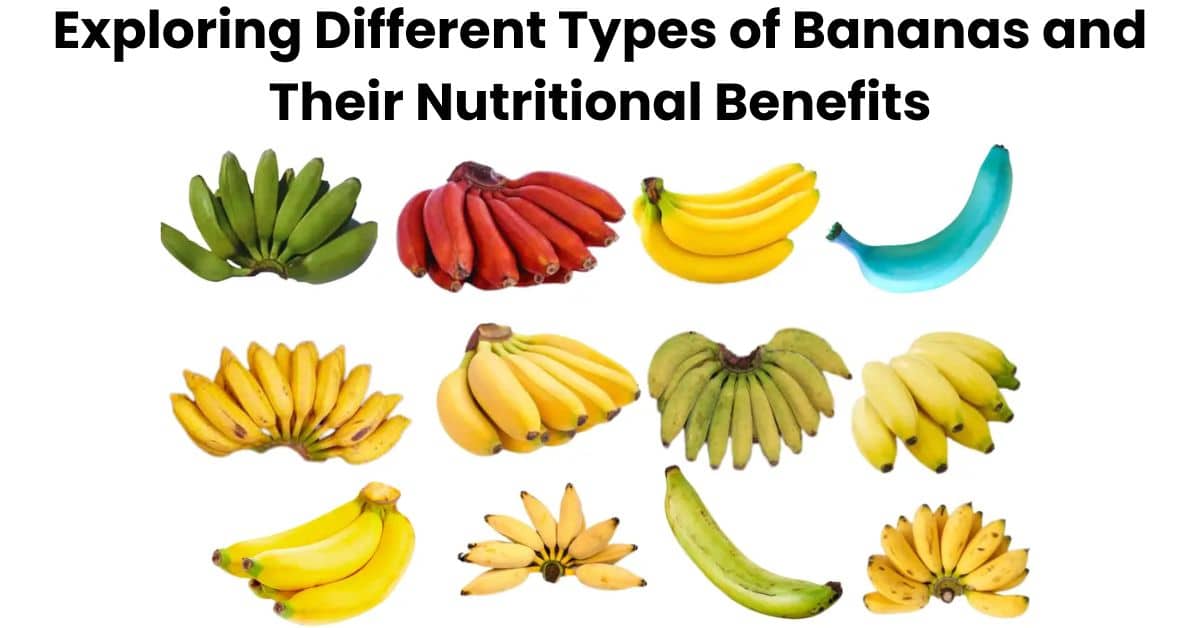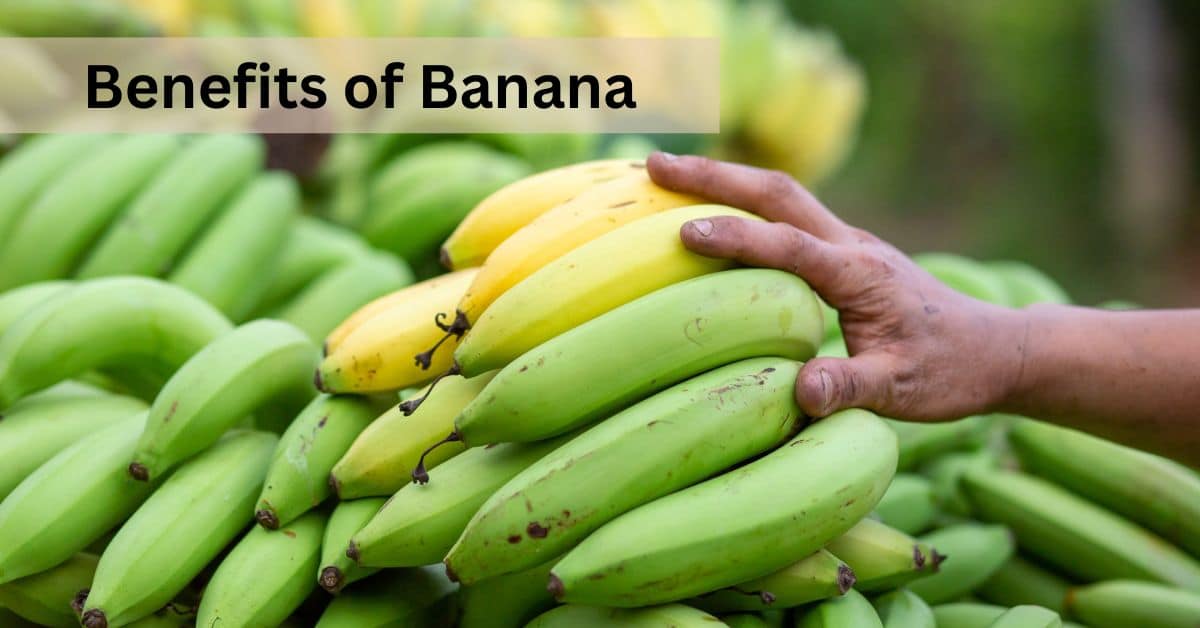Bananas, scientifically known as Musa, are one of the most popular fruits worldwide. Originating from Southeast Asia, bananas are now grown in many warm regions globally, making them easily accessible and affordable. Their sweet taste, portability, and impressive nutritional profile make bananas a staple in many households. But beyond their convenience and flavor, the benefits of banana consumption are vast, making them a must-have in your daily diet.
Nutritional Profile of Bananas
Understanding the nutritional composition is key to appreciating the benefits of banana consumption. A medium-sized banana (approximately 118 grams) provides:
- Calories: 105
- Carbohydrates: 27 grams
- Fiber: 3 grams
- Sugars: 14 grams
- Potassium: 422 mg
- Vitamin C: 10 mg
- Vitamin B6: 0.5 mg
- Magnesium: 32 mg
This nutritional breakdown highlights the benefits of banana intake, especially its role as a rich source of potassium, vitamin B6, and dietary fiber, which contribute to various aspects of health.
Boosts Energy Levels
One of the key benefits of banana consumption is its ability to provide a quick and sustained energy boost. Bananas contain three natural sugars: glucose, fructose, and sucrose, which are released into the bloodstream gradually. This makes bananas an ideal snack before or after physical activity, offering both immediate energy and prolonged endurance.
Supports Digestive Health
The benefits of banana consumption extend to digestive health due to their high fiber content. Bananas contain both soluble and insoluble fiber, with soluble fiber helping to regulate blood sugar levels and insoluble fiber aiding in digestive regularity. Additionally, bananas are known to act as a natural antacid, providing relief from heartburn and acid reflux.
Promotes Heart Health
The heart health benefits of banana consumption are significant, largely due to their potassium content. Potassium is an essential mineral that helps regulate blood pressure by balancing the negative effects of sodium. Regular banana consumption can lower the risk of heart disease and stroke by maintaining proper blood pressure levels. The fiber in bananas also contributes to reducing cholesterol levels, further enhancing cardiovascular health.
Aids in Weight Management
One of the benefits of banana intake is its role in weight management. Bananas are low in calories and fat, making them a perfect snack for those looking to control their weight. The fiber in bananas promotes satiety, reducing the likelihood of overeating. Additionally, the natural sweetness of bananas makes them a healthier alternative to processed sugary snacks, helping to satisfy sweet cravings in a healthier way.
Enhances Mood and Mental Health
The mental health benefits of banana consumption are attributed to their content of tryptophan, an amino acid that the body converts into serotonin. Serotonin is known as the “feel-good” hormone, and its increased levels can help improve mood, reduce stress, and alleviate symptoms of depression. The vitamin B6 in bananas also supports brain health by aiding in the production of neurotransmitters that regulate mood.
Supports Bone Health
While bananas are not particularly high in calcium, one of the benefits of banana consumption is their ability to support bone health by reducing calcium loss. The potassium in bananas helps to neutralize high levels of sodium in the body, which can otherwise lead to calcium loss through urine. This protective effect of bananas is vital in maintaining strong and healthy bones.
Promotes Kidney Health
The benefits of banana intake also include improved kidney health. Potassium, abundant in bananas, plays a crucial role in maintaining kidney function and preventing the formation of kidney stones. By promoting a healthy balance of fluids and electrolytes, bananas help to prevent the crystallization of substances that lead to stone formation, thus protecting the kidneys.
Enhances Skin Health
The benefits of banana consumption are not limited to internal health; they also extend to skin care. Bananas are rich in antioxidants, which help to protect the skin from damage caused by free radicals. Vitamin C in bananas supports collagen production, essential for maintaining skin elasticity and preventing wrinkles. Moreover, applying mashed banana directly to the skin can serve as a natural moisturizer, leaving the skin soft and hydrated.
Boosts Immune System
Bananas contribute to a stronger immune system, which is another crucial benefit of banana intake. The fruit is rich in vitamin C, which is vital for immune function. This vitamin helps stimulate the production of white blood cells, which are essential in defending the body against infections. Regular consumption of bananas can help reduce the frequency of colds and other minor infections.
Improves Vision
Improved vision is another of the key benefits of banana consumption. While bananas do not contain as much vitamin A as carrots, they do provide a decent amount of this essential vitamin, which is crucial for maintaining good eyesight. The antioxidants and carotenoids present in bananas also play a role in preventing macular degeneration and cataracts.
A Versatile and Convenient Snack
Finally, one of the most practical benefits of banana consumption is its convenience. Bananas are portable, easy to eat, and require no preparation, making them an ideal snack for busy individuals. They can be enjoyed on their own, sliced into cereal, blended into smoothies, or even baked into desserts, providing a versatile option for any meal.
Exploring Different Types of Bananas and Their Nutritional Benefits
There are numerous varieties of bananas grown worldwide, each with its own unique taste, texture, and nutritional profile. Below are some of the most popular types of bananas along with their nutritional benefits.

Cavendish Bananas
Description: Cavendish bananas are the most common type of banana found in supermarkets. They are the typical yellow bananas with a soft texture and sweet flavor.
Nutritional Profile (per 100g):
- Calories: 89
- Carbohydrates: 22.8g
- Fiber: 2.6g
- Sugar: 12.2g
- Protein: 1.1g
- Potassium: 358mg
- Vitamin C: 8.7mg
Benefits: Cavendish bananas are rich in potassium, which is vital for heart health and muscle function. They also provide a good amount of vitamin C and dietary fiber.
Plantains (Green Bananas)
Description: Plantains are larger and firmer than Cavendish bananas and are often cooked before eating. They are starchy and less sweet, commonly used in savory dishes.
Nutritional Profile (per 100g):
- Calories: 122
- Carbohydrates: 31.9g
- Fiber: 2.3g
- Sugar: 14.8g
- Protein: 1.3g
- Potassium: 499mg
- Vitamin C: 18.4mg
Benefits: Plantains are a great source of complex carbohydrates and dietary fiber, making them a good option for sustained energy. They are also rich in potassium and vitamin C.
Red Bananas
Description: Red bananas have reddish-purple skin and a sweeter, slightly raspberry-like flavor. They are smaller and denser than Cavendish bananas.
Nutritional Profile (per 100g):
- Calories: 90
- Carbohydrates: 21g
- Fiber: 3g
- Sugar: 12g
- Protein: 1.3g
- Potassium: 358mg
- Vitamin C: 9mg
- Vitamin B6: 0.4mg
Benefits: Red bananas are packed with antioxidants, particularly beta-carotene and vitamin C. They are also a good source of dietary fiber, aiding in digestion.
Burro Bananas
Description: Burro bananas are shorter and more blocky in shape, with a tangy lemon-banana flavor. Their flesh is firm and slightly creamy.
Nutritional Profile (per 100g):
- Calories: 110
- Carbohydrates: 27g
- Fiber: 3g
- Sugar: 14g
- Protein: 1.5g
- Potassium: 450mg
- Vitamin C: 10mg
- Vitamin B6: 0.5mg
Benefits: Burro bananas are a good source of potassium, fiber, and vitamin C. They also provide magnesium, which is important for bone health and muscle function.
Manzano Bananas (Apple Bananas)
Description: Manzano bananas, also known as apple bananas, are short and fat with a mild, apple-like flavor when ripe.
Nutritional Profile (per 100g):
- Calories: 90
- Carbohydrates: 23g
- Fiber: 2.8g
- Sugar: 14g
- Protein: 1.2g
- Potassium: 400mg
- Vitamin C: 9mg
- Vitamin B6: 0.3mg
Benefits: Manzano bananas are high in vitamin C and potassium, supporting immune function and cardiovascular health. Their fiber content also aids digestion.
Blue Java Bananas (Ice Cream Bananas)
Description: Blue Java bananas, also known as ice cream bananas, have a blue-tinted skin and a creamy, vanilla-like flavor when ripe.
Nutritional Profile (per 100g):
- Calories: 89
- Carbohydrates: 23g
- Fiber: 2.6g
- Sugar: 12g
- Protein: 1.2g
- Potassium: 360mg
- Vitamin C: 8.7mg
Benefits: Blue Java bananas provide a good source of natural sugars and carbohydrates for energy. They are also rich in potassium and dietary fiber, supporting heart health and digestion.
Pisang Raja Bananas
Description: Pisang Raja bananas are popular in Indonesia and are often used in desserts. They are medium-sized with a sweet, rich flavor.
Nutritional Profile (per 100g):
- Calories: 100
- Carbohydrates: 26g
- Fiber: 2.5g
- Sugar: 13g
- Protein: 1.3g
- Potassium: 380mg
- Vitamin C: 9mg
- Vitamin B6: 0.4mg
Benefits: Pisang Raja bananas are rich in potassium, helping to regulate blood pressure and support muscle function. Their fiber content also promotes digestive health.
Lady Finger Bananas
Description: Lady Finger bananas, also known as sugar bananas, are small and sweet, with a creamy texture and thin skin.
Nutritional Profile (per 100g):
- Calories: 85
- Carbohydrates: 22g
- Fiber: 2.4g
- Sugar: 11g
- Protein: 1.0g
- Potassium: 350mg
- Vitamin C: 9mg
- Vitamin B6: 0.3mg
Benefits: Lady Finger bananas are low in calories and high in potassium, making them an excellent choice for a healthy, energy-boosting snack. They also support heart health and digestion.
Goldfinger Bananas
Description: Goldfinger bananas are a newer variety developed in Honduras, known for their sweet taste and resistance to diseases.
Nutritional Profile (per 100g):
- Calories: 90
- Carbohydrates: 23g
- Fiber: 2.7g
- Sugar: 12g
- Protein: 1.2g
- Potassium: 370mg
- Vitamin C: 8.9mg
- Vitamin B6: 0.4mg
Benefits: Goldfinger bananas offer the benefits of potassium and fiber for heart and digestive health. Their sweet taste and disease resistance make them a popular choice in tropical regions.
Red Dacca Bananas
Description: Red Dacca bananas are smaller and sweeter than Cavendish, with a reddish-purple skin and creamy flesh.
Nutritional Profile (per 100g):
- Calories: 91
- Carbohydrates: 22.8g
- Fiber: 2.6g
- Sugar: 12.5g
- Protein: 1.3g
- Potassium: 358mg
- Vitamin C: 9.2mg
Benefits: Red Dacca bananas are rich in antioxidants, particularly beta-carotene, which supports skin health and immune function. Their high potassium content is also beneficial for heart health.
Conclusion
The benefits of banana consumption are extensive, making this fruit an indispensable part of a healthy diet. From boosting energy levels and supporting heart health to enhancing mood and improving skin health, bananas offer a wide range of health benefits. Their rich nutrient profile, coupled with their convenience and versatility, makes bananas a perfect choice for anyone looking to improve their overall health and well-being. Make bananas a daily part of your diet to enjoy the many benefits they provide.

